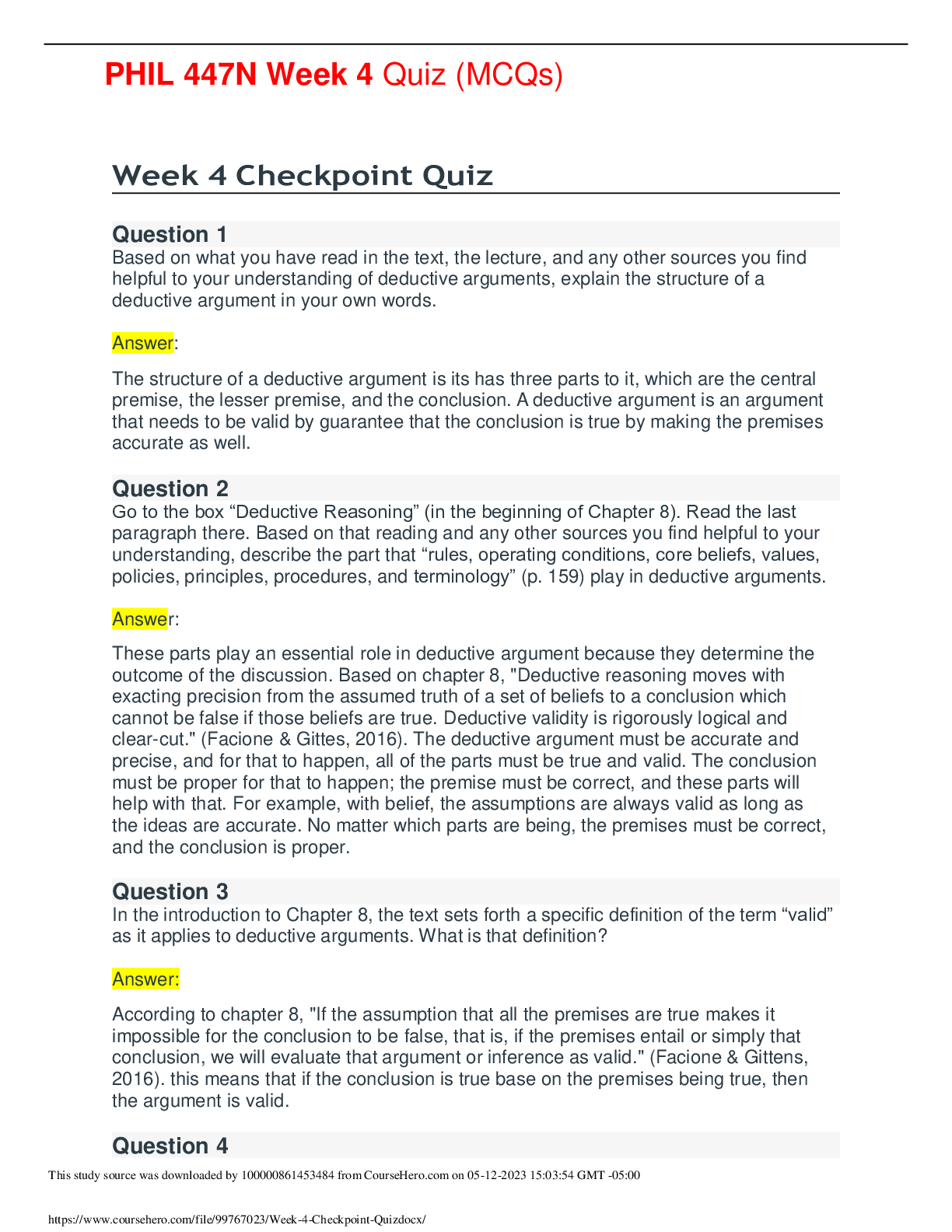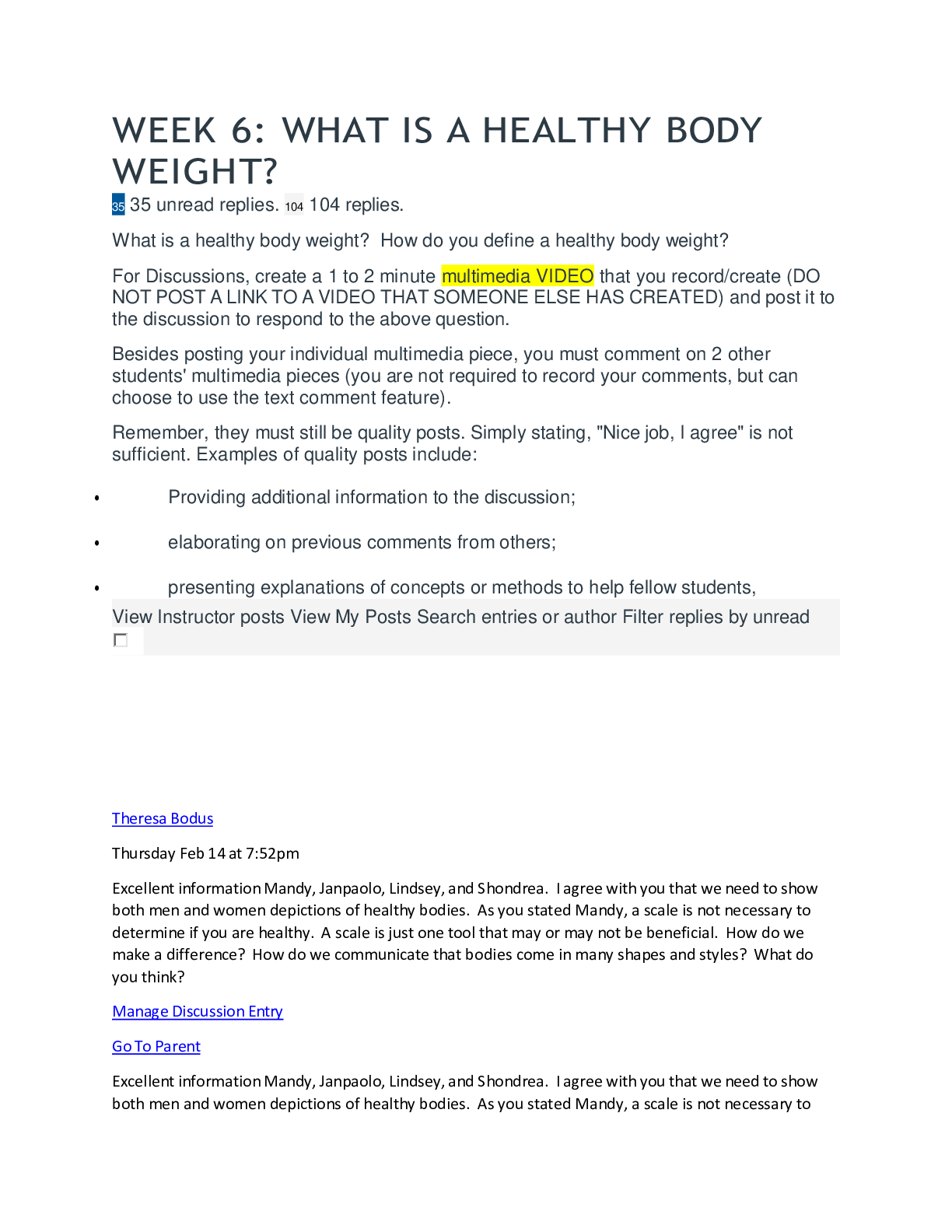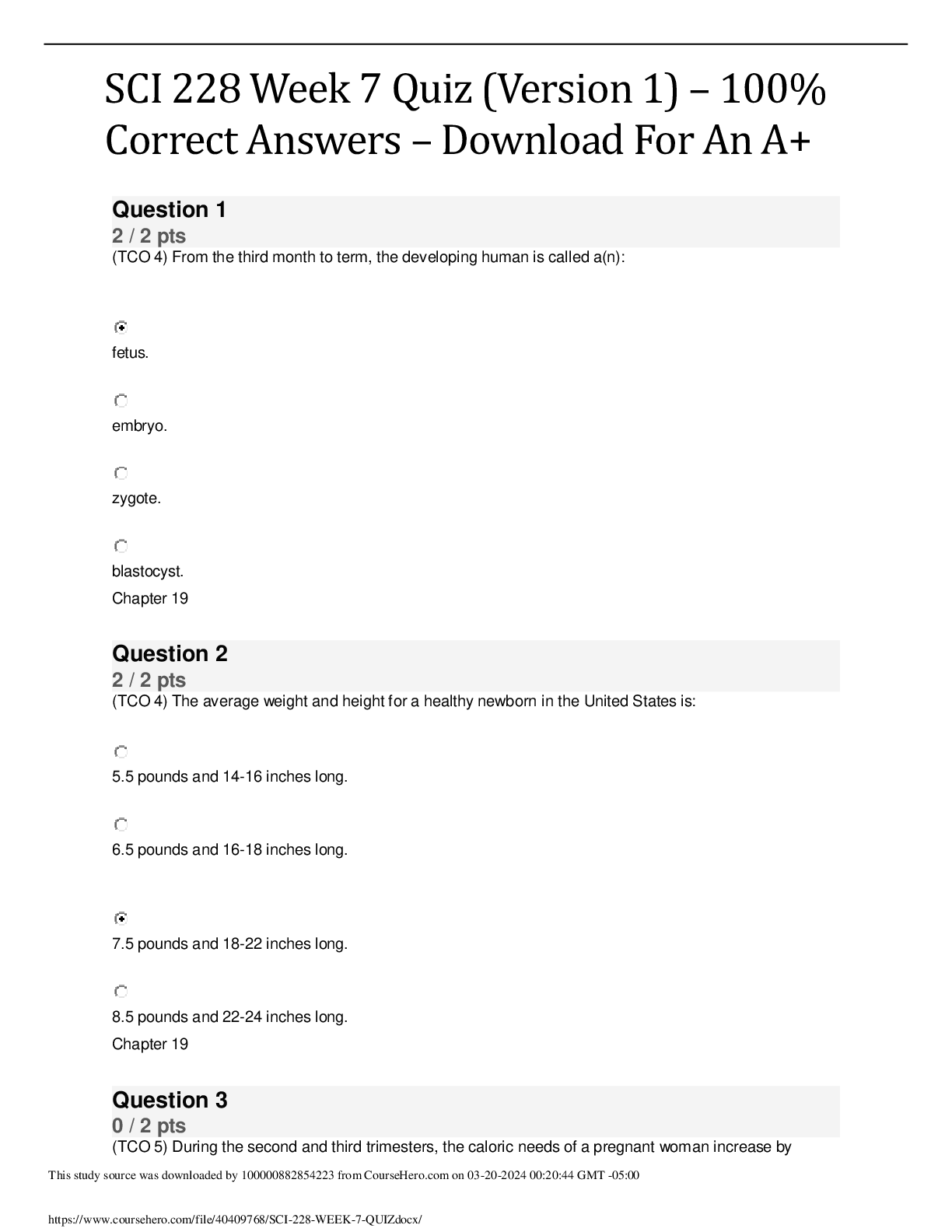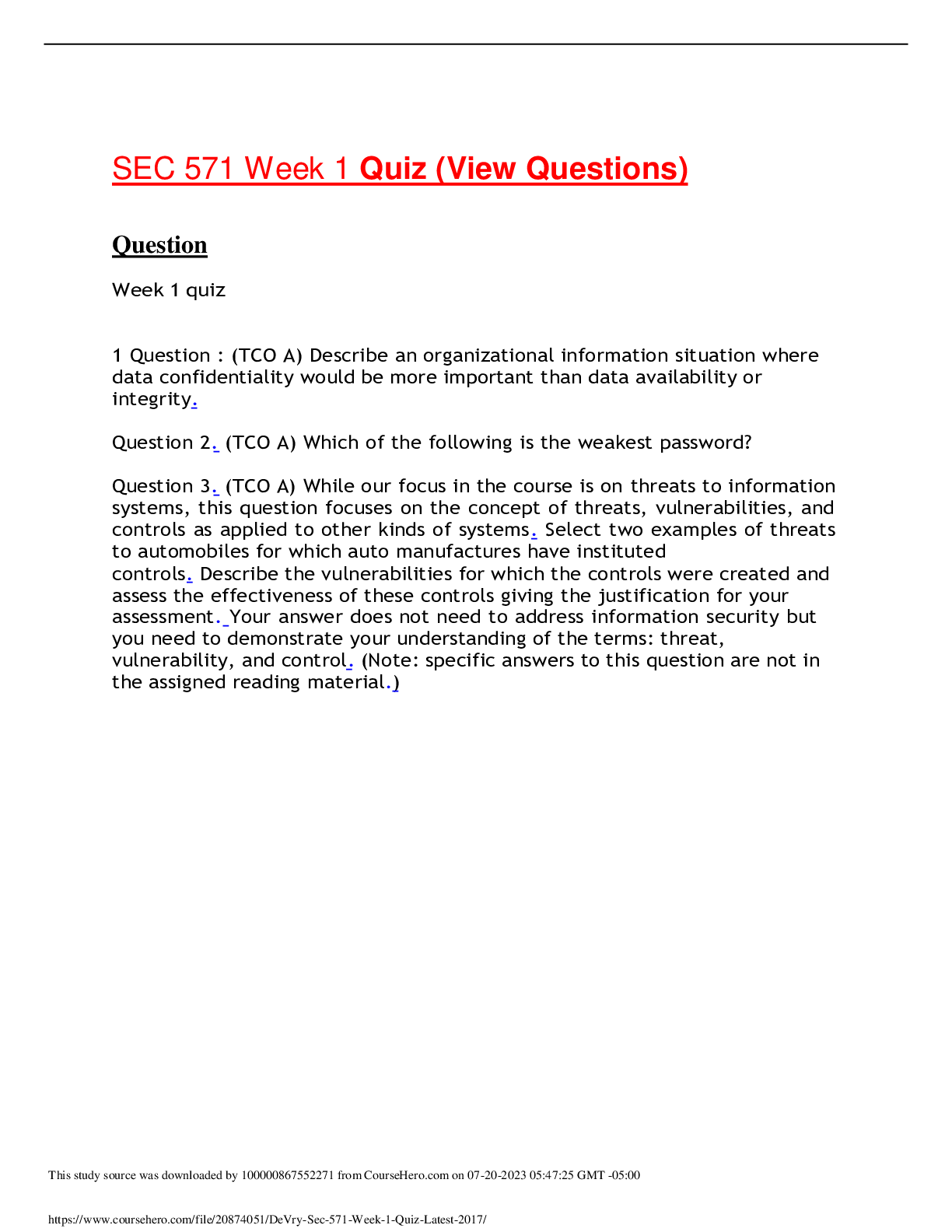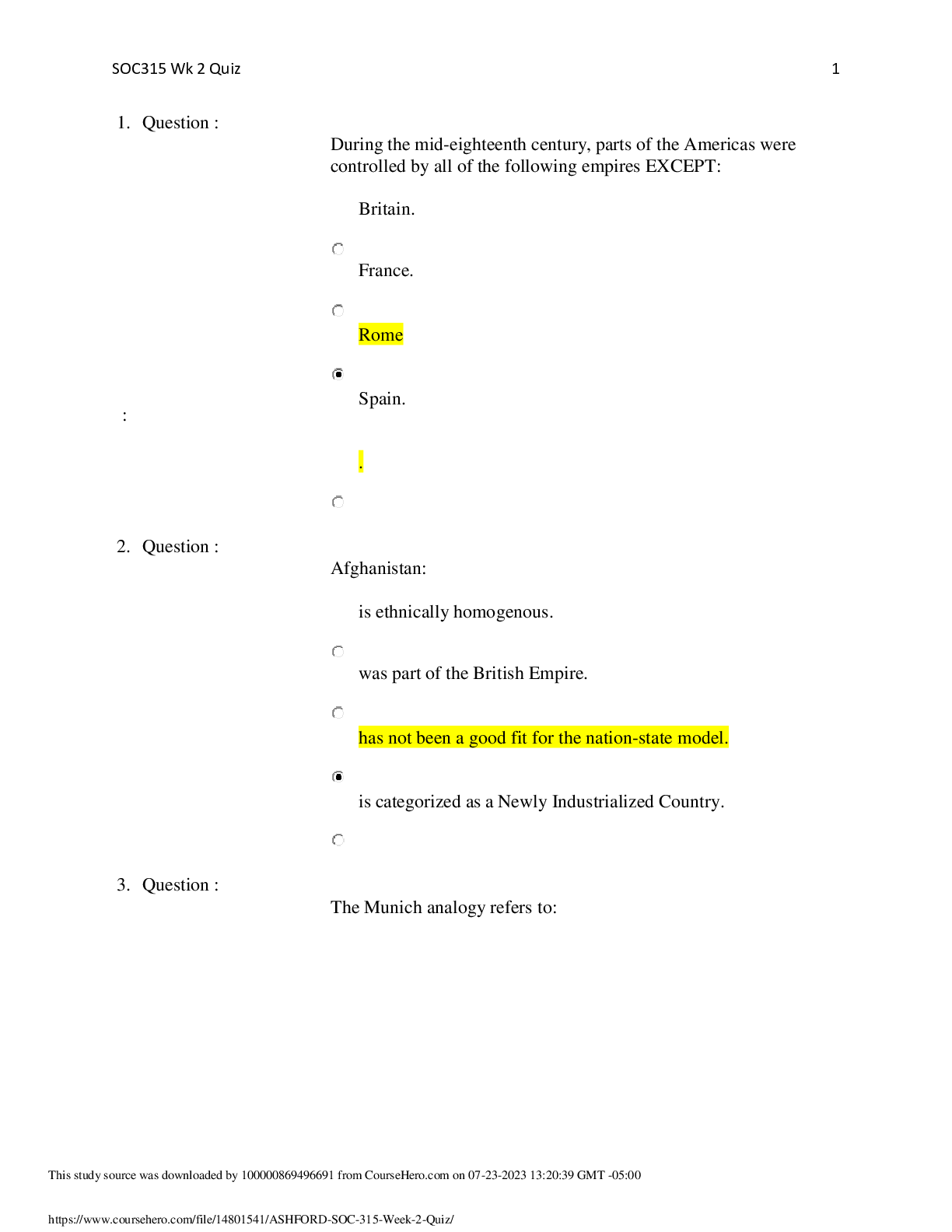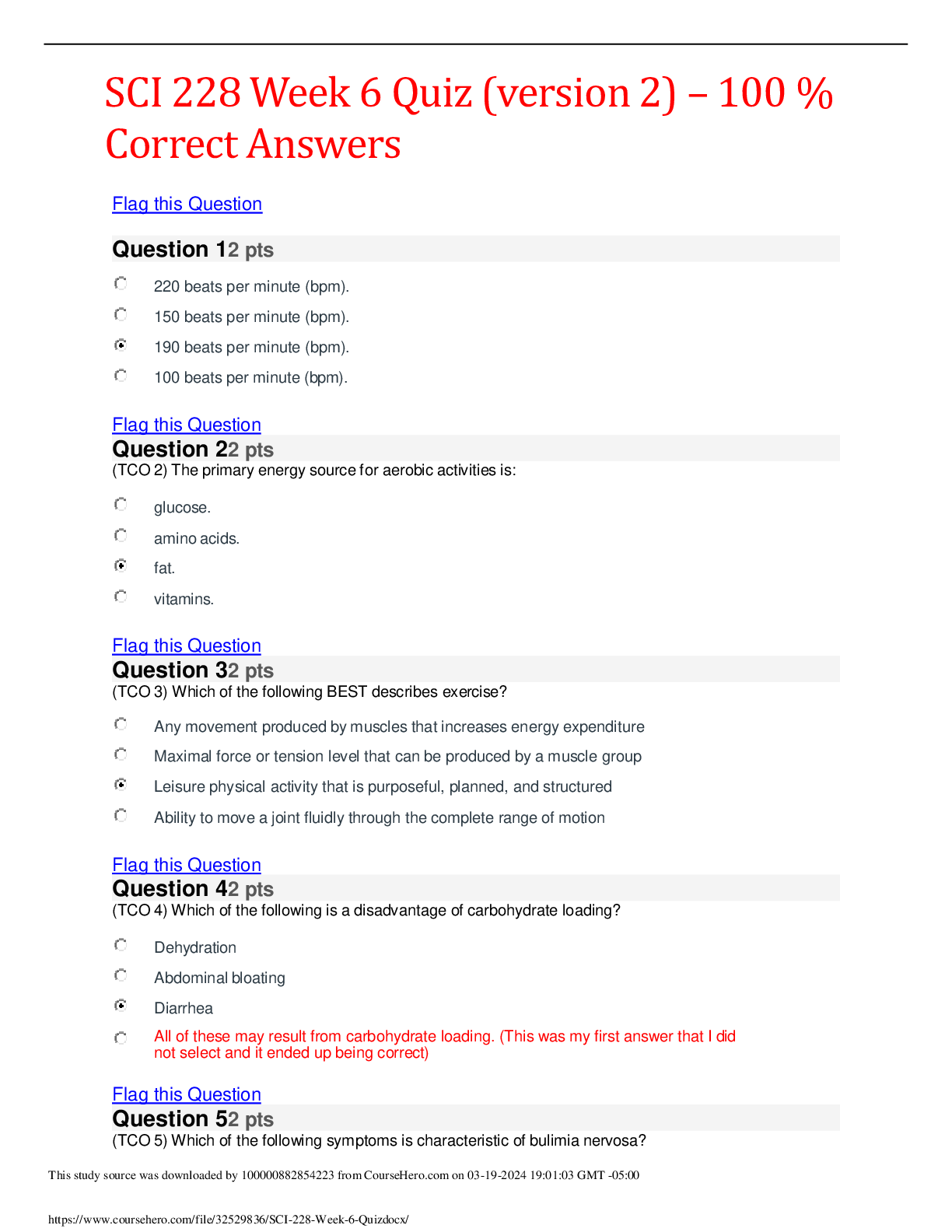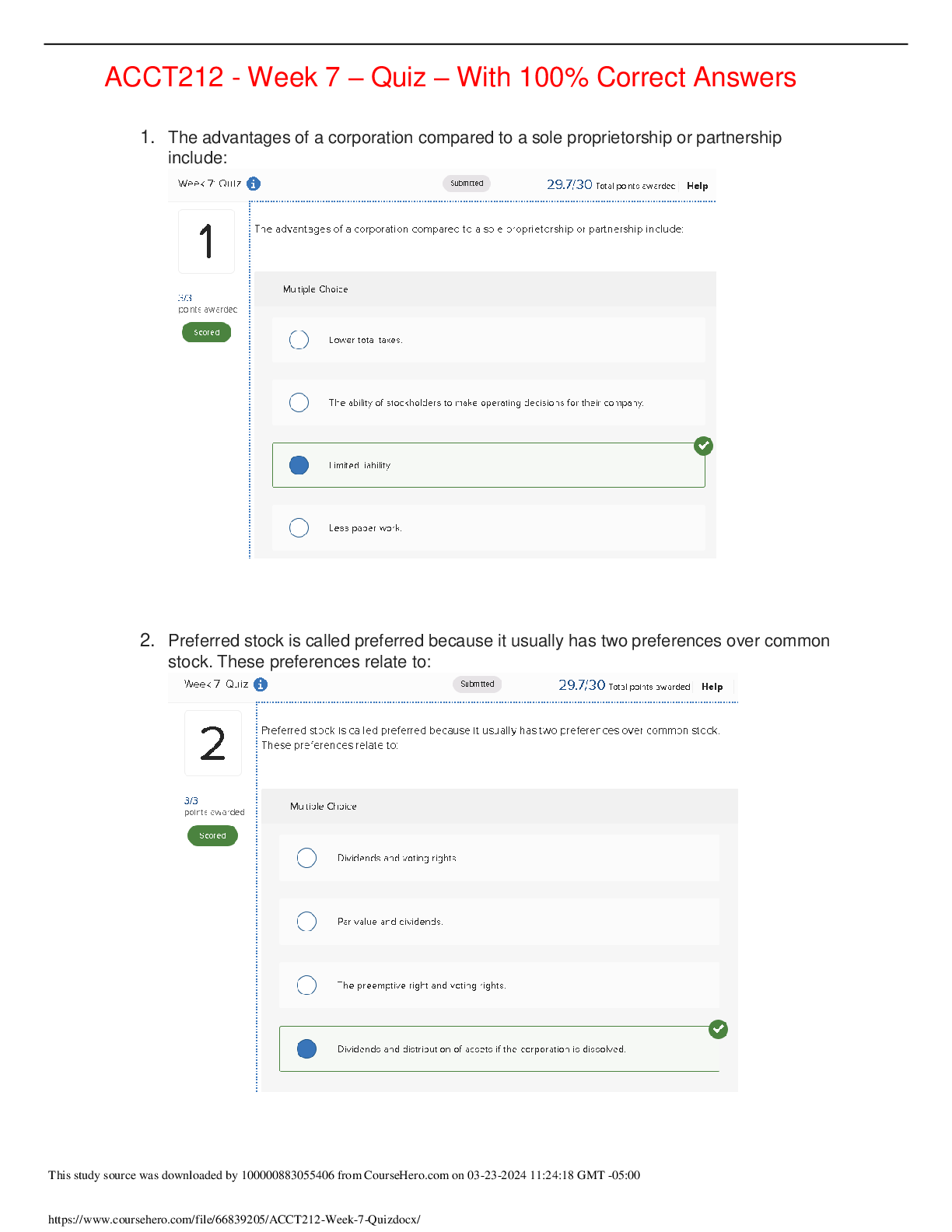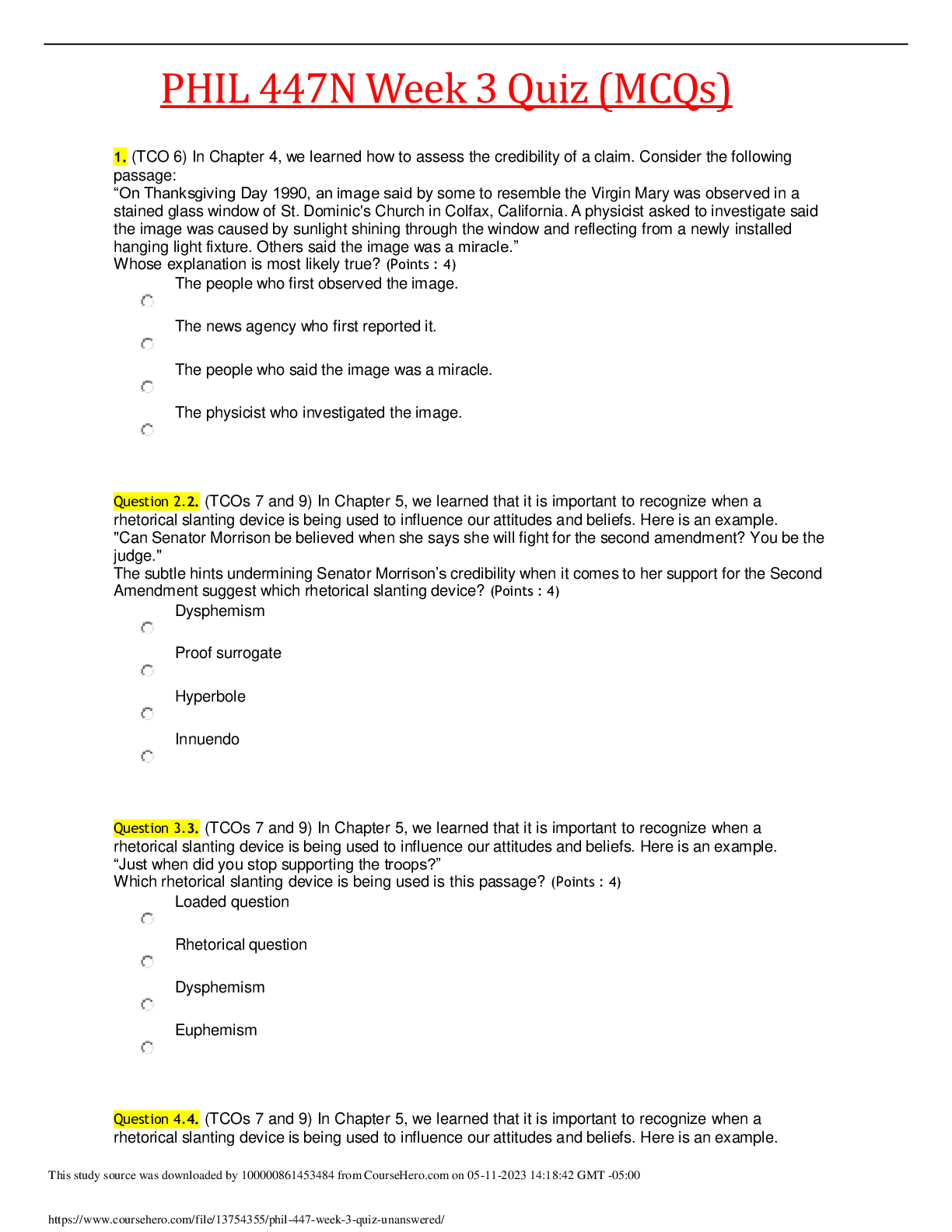*NURSING > Quiz > NR 601 WEEK 2 QUIZ- DOWNLOAD FOR QUESTIONS AND WELL ELABORATED ANSWERS TO SCORE A HIGH GRADE (All)
NR 601 WEEK 2 QUIZ- DOWNLOAD FOR QUESTIONS AND WELL ELABORATED ANSWERS TO SCORE A HIGH GRADE
Document Content and Description Below
Week 2: Test Your Knowledge Score for this quiz: 10 out of 10 Submitted Jan 11 at 1:17pm This attempt took 3 minutes. How many hours per day of supplemental oxygen therapy has been shown to reduce... mortality associated with COPD? 15 hours 6 hours 23 hours 10 hours Home oxygen therapy has been shown to decrease mortality. 1-2 liters of oxygen/min for 15 hours/day will maintain SaO2 of 90% or greater. Dunphy p. 414. The nurse practitioner student is assessing a patient with chronic obstructive pulmonary disease (COPD). This patient would be most likely to demonstrate which of the following lung changes? permanently deflated alveoli increased surface volume for gas exchange decreased residual volume hyperinflation of the lungs Hyperinflation of the lungs is due to the increased total lung capacity present with obstruction. Week 2: Spirometry video- Kahn academy, Dunphy et al p. 399 Which of the following is total volume of air a patient is able to exhale in the first second, during maximal effort? FEV 1 FEV1/FVC ratio TLC FVC The FEV1 which is the forced exhalation volume in the first second of the forced exhale. The FEV1 measures how quickly full lungs can be emptied. The FVC is total volume of air expelled and is a measurement over time. The FEV1 to FVC ratio provides information on airflow limitation. It is a percentage of maximum inspiration expired in one second. TLC, total lung capacity is the total amount of air in the lungs after taking the deepest breath possible. ** Patients with chronic obstructive pulmonary disease (COPD) are often unable to fully exhale which can result in hyperinflation of the lungs and a greater total lung capacity. Week 2: Spirometry video - Khan Academy A >12% change from pre-bronchodilator to post-bronchodilator results indicate which of the following ? the obstruction is not reversible the patient has emphysema the patient has mild COPD the obstruction is reversible An increase in the FEV 1 of > 12% after 2 bronchodilator puffs indicates reversibility. A postbronchodilator increase of < 12% indicates the condition is not reversible. Dunphy p. 399, Week 2: Spirometry video - Khan Academy The nurse practitioner is assessing a client who presents with complaints of sleeping difficulty. He wakes up suddenly, multiple times a night, feeling short of breath. His partner reports snoring and intermittent gasping. The nurse practitioner suspects which of the following conditions? chronic obstructive pulmonary disease pneumonia obstructive sleep apnea congestive heart failure In obstructive sleep apnea snoring is due to airflow obstruction from the tongue or soft palate during respiratory effort. Dunphy p.363 PreviousNext Quiz Score: 10 out of 10 [Show More]
Last updated: 2 years ago
Preview 1 out of 3 pages

Buy this document to get the full access instantly
Instant Download Access after purchase
Buy NowInstant download
We Accept:

Reviews( 0 )
$15.00
Can't find what you want? Try our AI powered Search
Document information
Connected school, study & course
About the document
Uploaded On
Feb 02, 2023
Number of pages
3
Written in
Additional information
This document has been written for:
Uploaded
Feb 02, 2023
Downloads
0
Views
117


